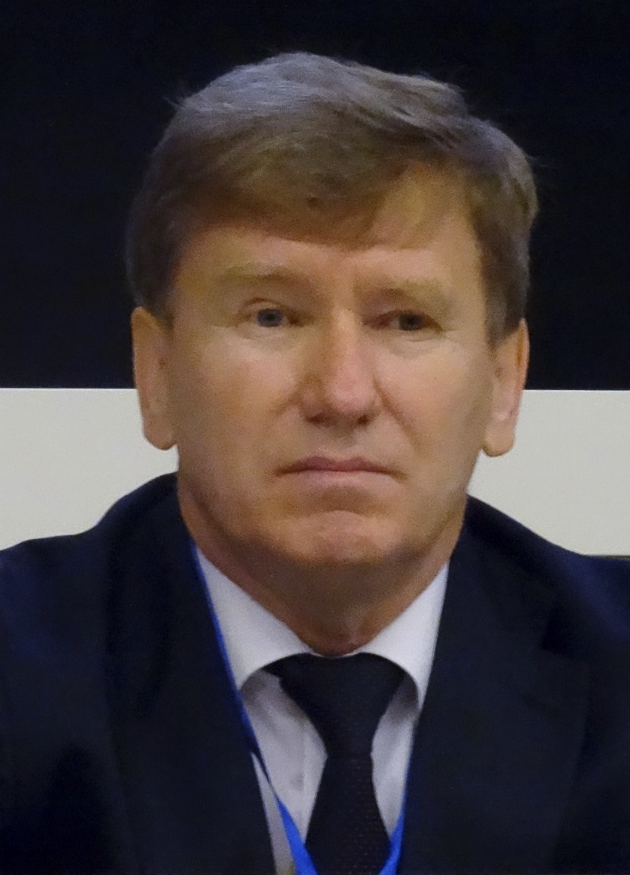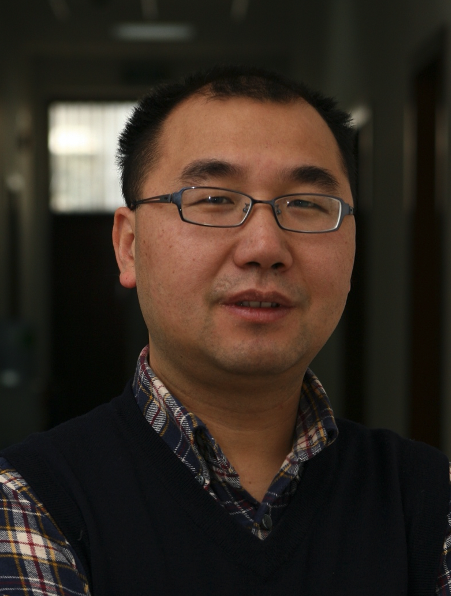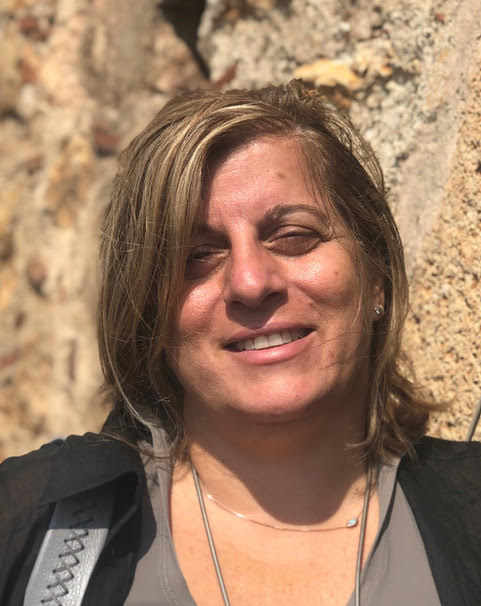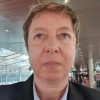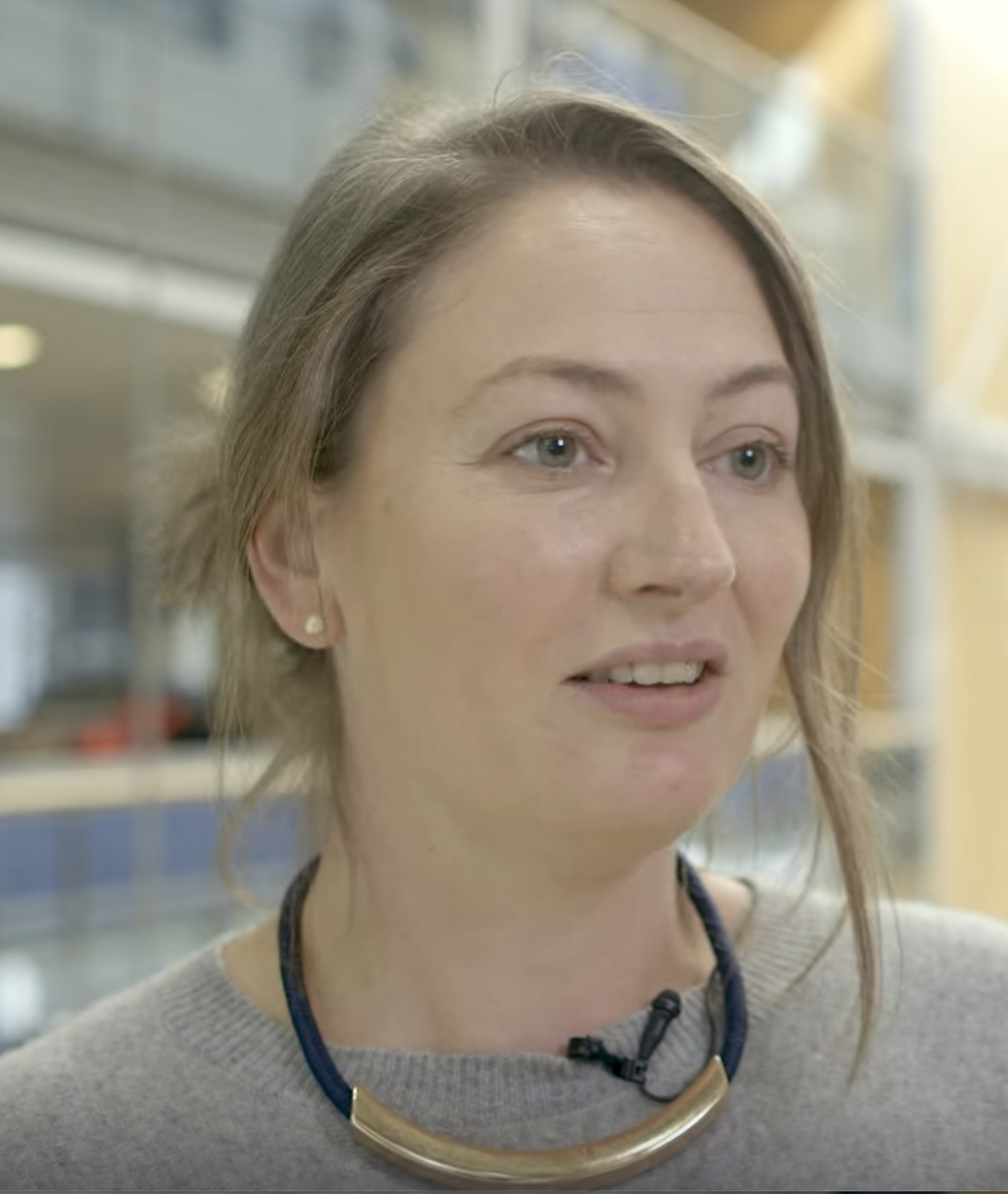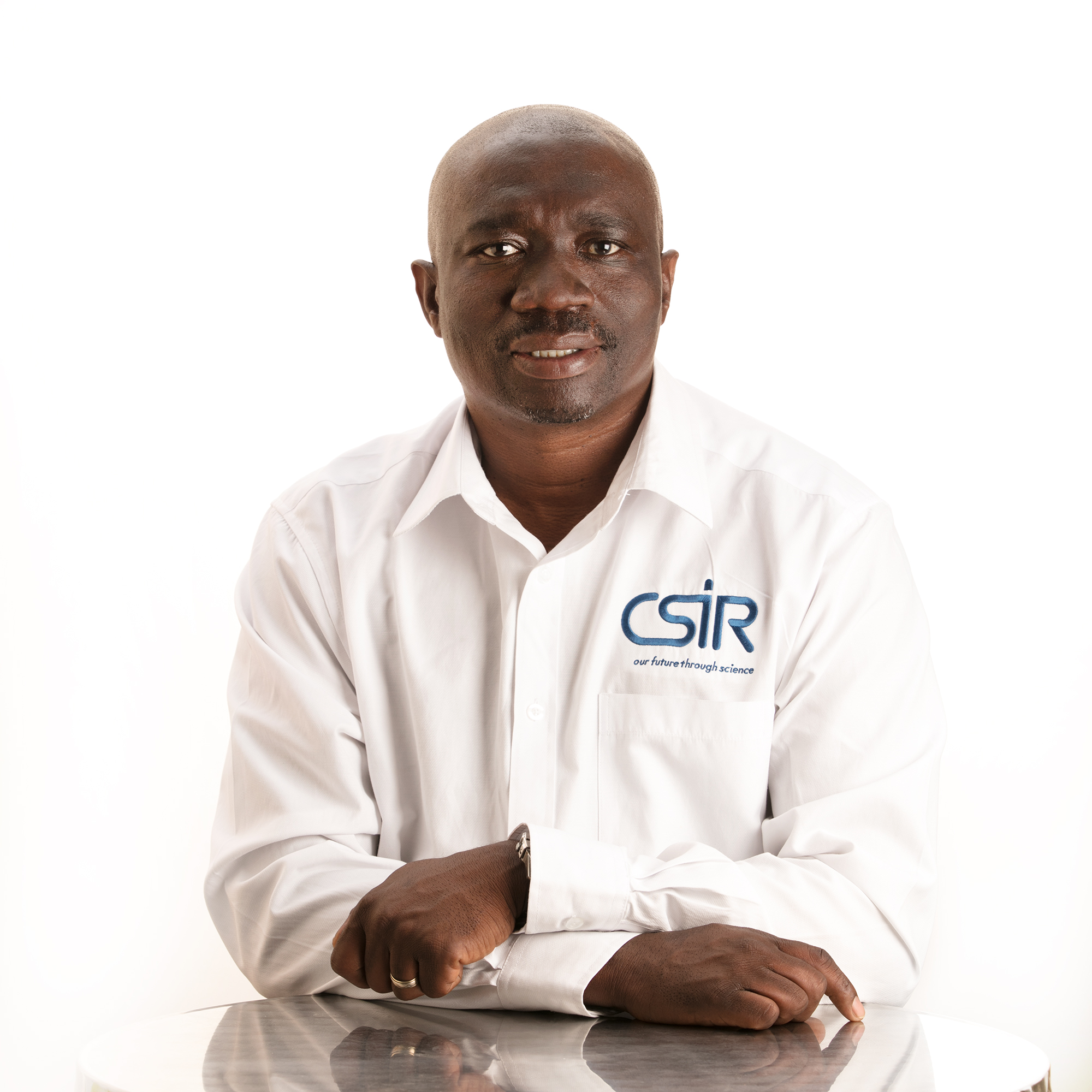Keynote speakers
|
T-Systems |
University of Freiburg |
European Commission |
European Commission |
Invited speakers
|
University of Edinburgh |
EODC |
NAOC |
ESRF |
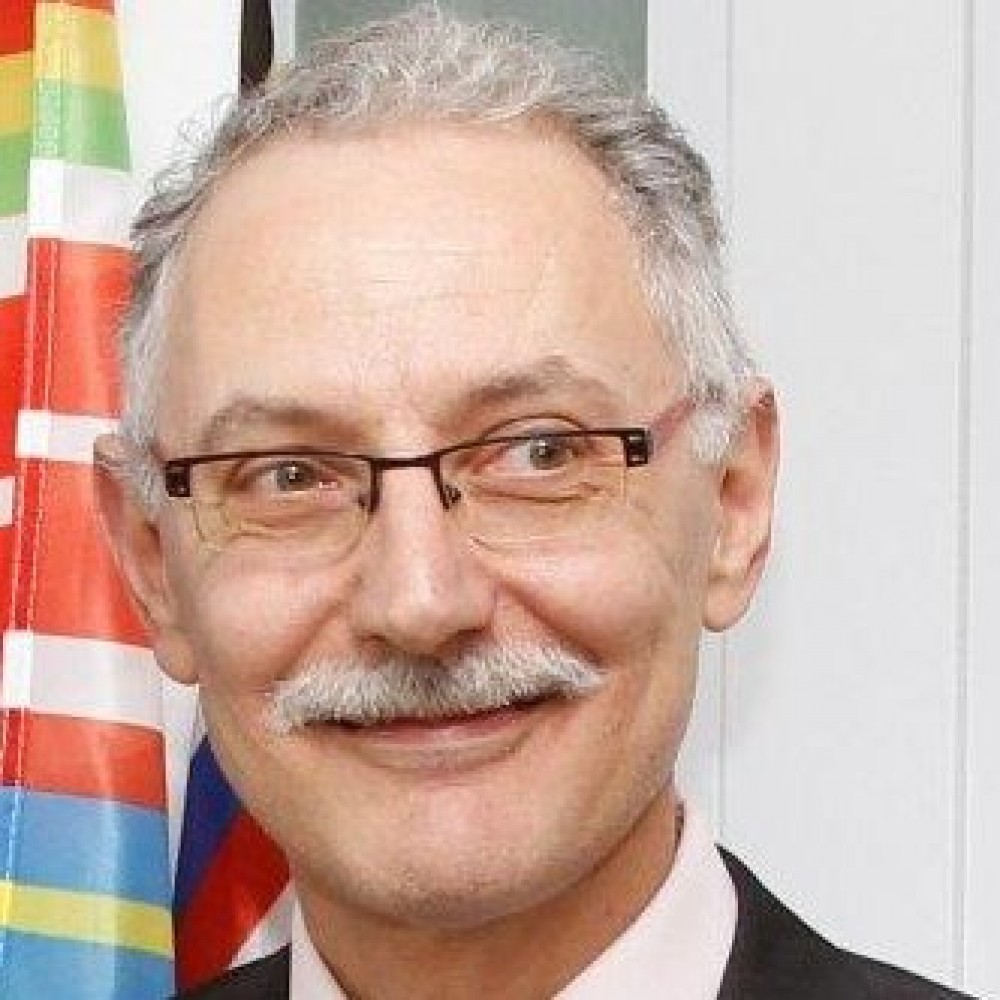
European Commission |
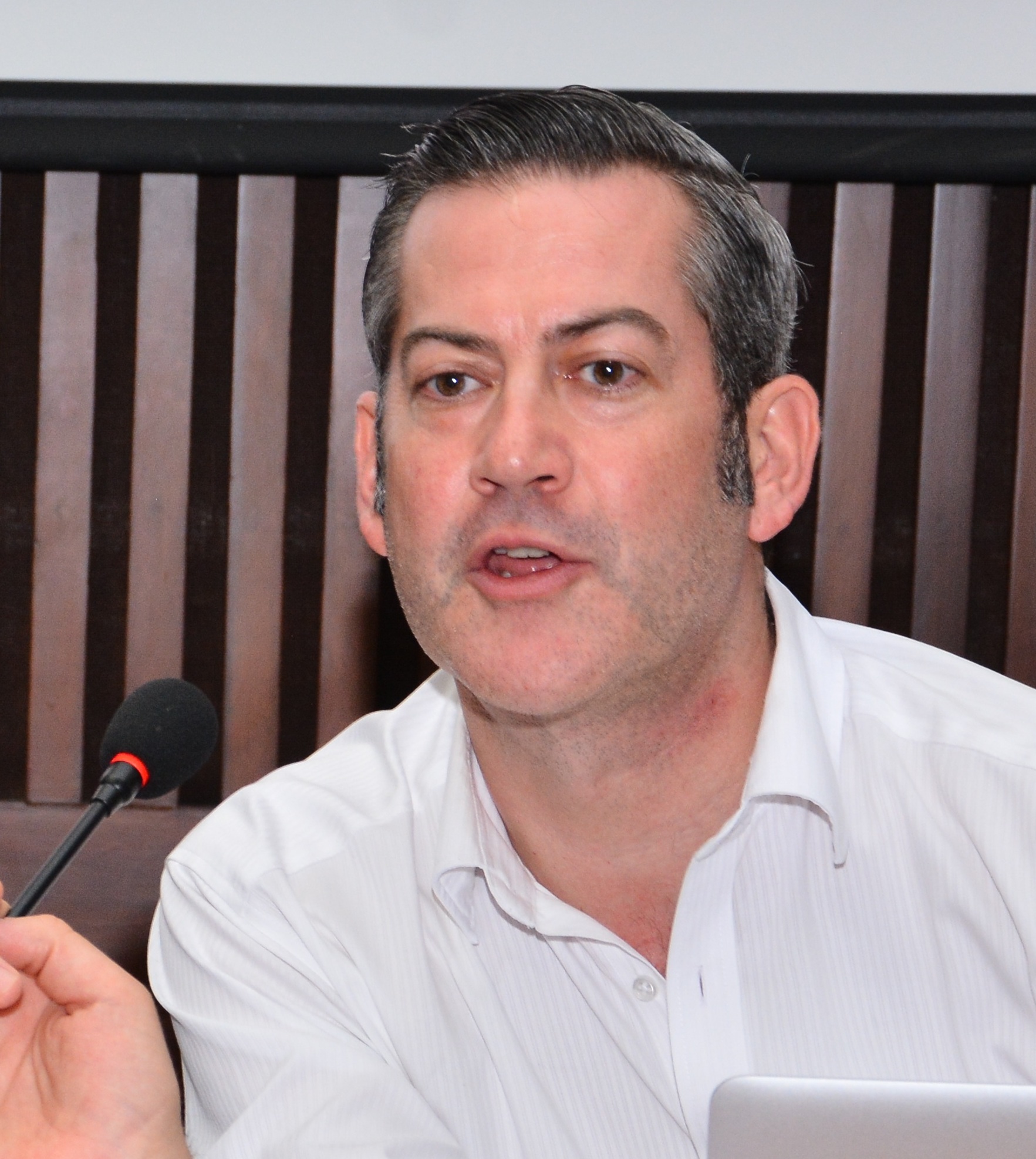
CODATA |
EISCAT |
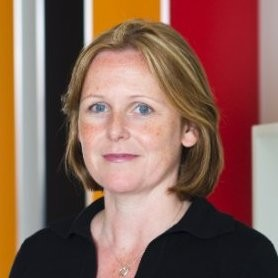
ARDC |
|
GÉANT |
GÉANT |
F1000 Research Ltd. |

JRC |
|
LIT JINR |
CNIC |
OpenAIRE |
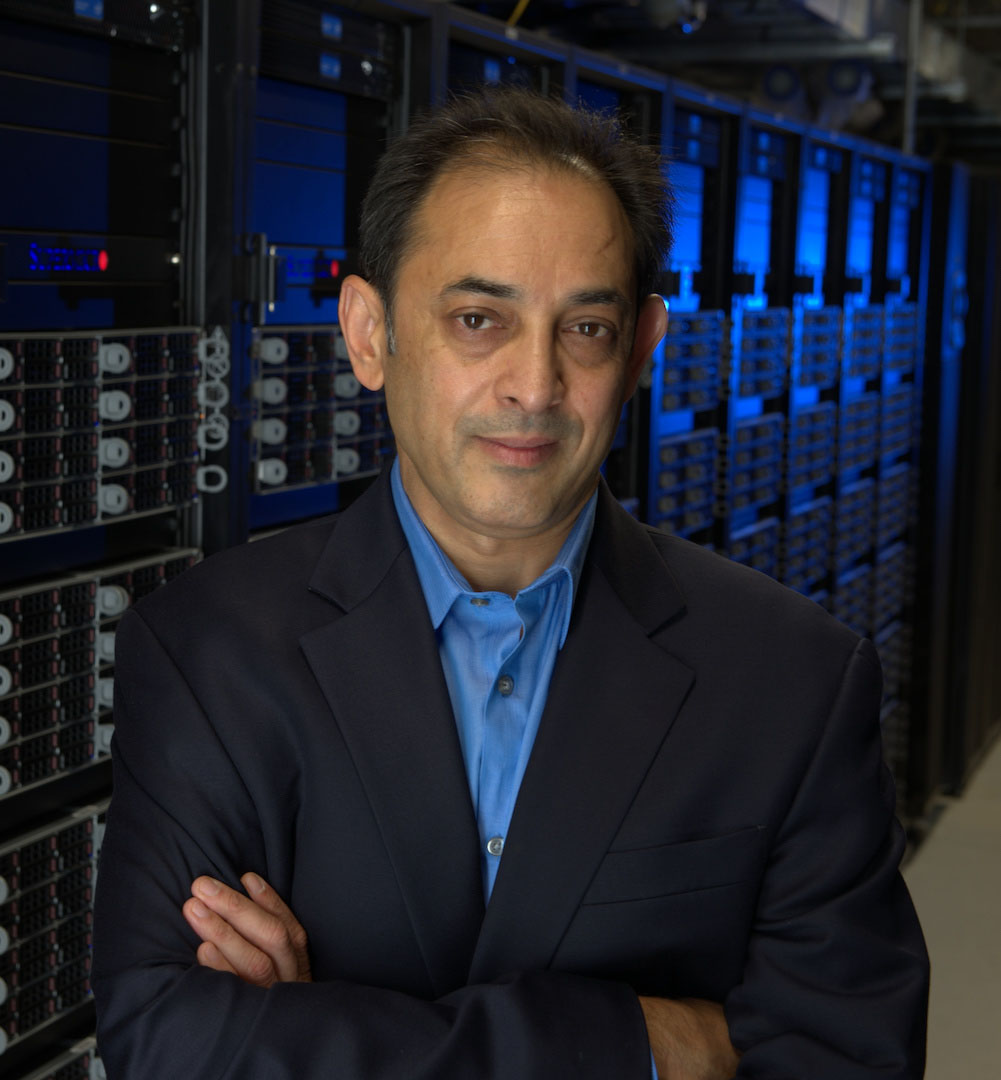
NSF |
|
European Commission |
ECMWF |
University of Manchester |
AASCTC |
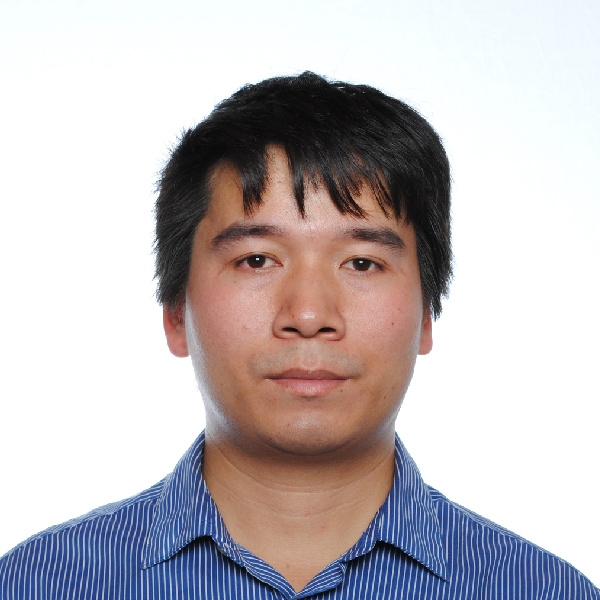
Inst. of Geology and Geophysics |
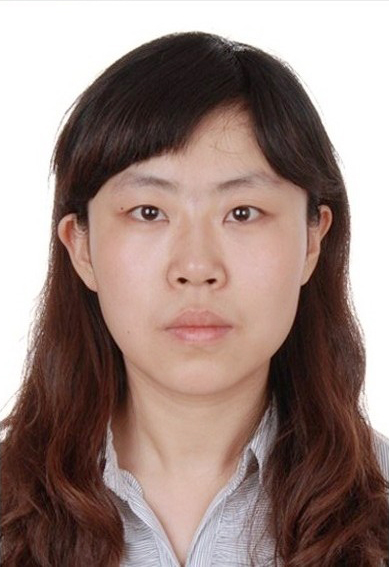
CNIC |
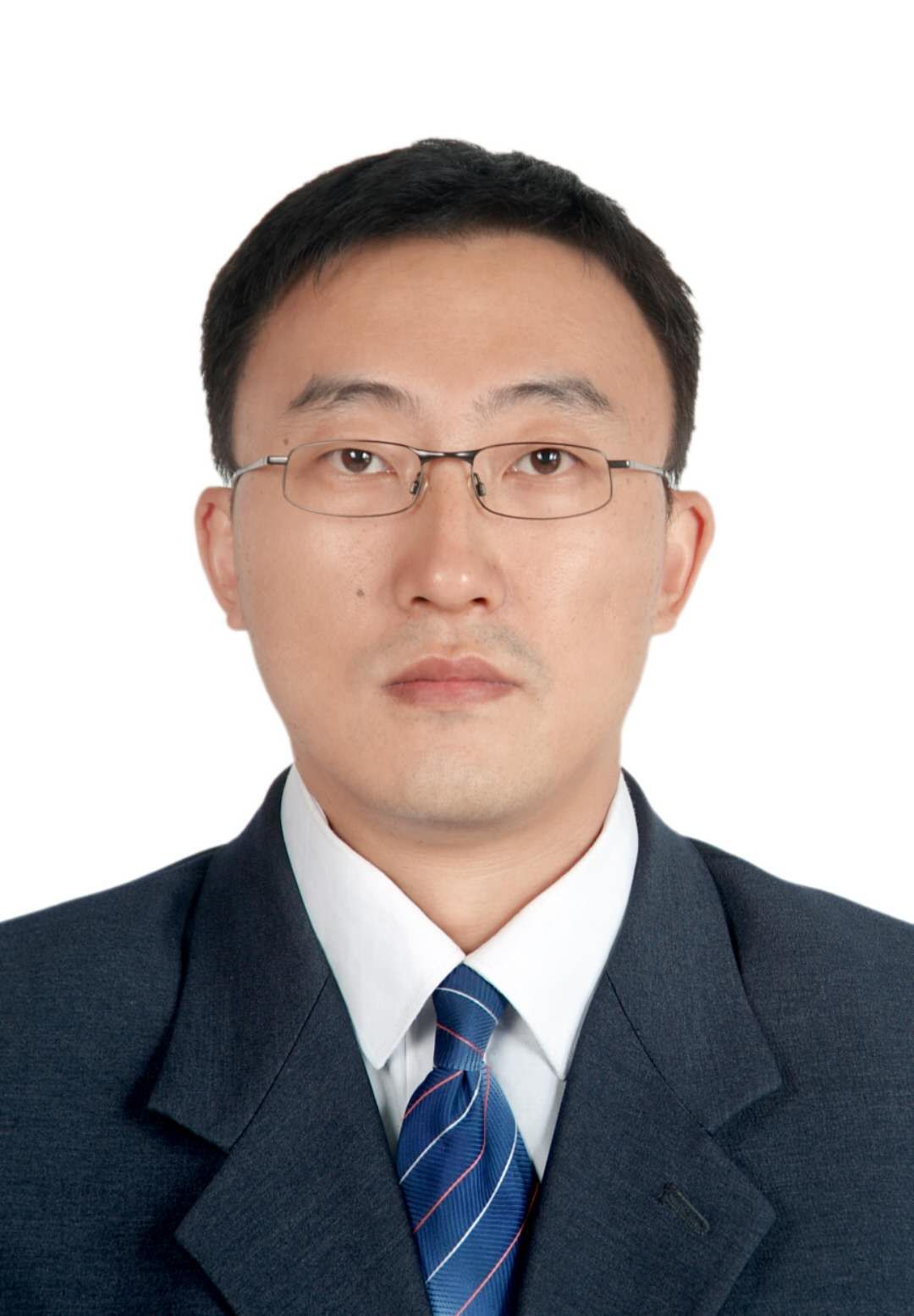
CAS |
Keynote speaker: Maximilian Ahrens
Maximilian Ahrens is CTO at T-Systems. He is a co-founder of Zimory. As an expert for virtualization and service-oriented architecture, Maximilian first worked as project leader at the Deutsche Telecom Laboratories, where he headed up innovative projects for corporate clients. Following Deutsche Telekom, this business engineer worked for various German companies in the area of re-engineering and further development of their business processes. Before Deutsche Telekom, he led several business process re-engineering projects for major German companies. Maximilian Ahrens studied Industrial Engineering at Berlin Technical University.
Maximilian will present the industry approach to cloud federation with GAIA-X in the Opening Plenary, 03 November
Keynote speaker: Liina Munari, European Commission
Liina Munari is the Deputy Head of Unit at the unit C1 ”e-Infrastructure and Science Cloud” of the DG Connect of the European Commission in Luxembourg. With over 20 years experience at the service of the European institutions, she has worked in several sectors of EU technology research and innovation, including learning technologies, digital libraries and digital preservation. Her academic background is in international and European politics.
Munari will present EC future directions for e-Infrastructures in Horizon Europe during the Opening plenary, 02 November.
Keynote speaker: Christian Kirchsteiger, European Commission
Christian Kirchsteiger is currently responsible within the European Commission's Directorate-General for Communications Networks, Content and Technology (DG CNECT) for initiatives in relation to developing more convergent European high performance computing, cloud and artificial intelligence infrastructures, notably the Green Deal “Destination Earth” initiative.
He holds a PhD in Nuclear Physics and was, before joining the European Commission in 1996, working in industry and research in South Africa, Japan and Germany in the areas of nuclear safety and energy systems modelling. From 1996-2007 he was employed at the European Commission's Joint Research Centre in Ispra/Italy and Petten/Netherlands to develop new methods for systems modelling in the energy, transport and process industry sectors and integrate them in EU thematic policies. From 2007-2017, he worked for the Commission’s Directorate-General for Energy (DG ENER) in Luxembourg to develop comparative energy sustainability initiatives as well as more integrated nuclear safety, security and safeguards policies.
Since 2017 he is responsible at DG CNECT in Luxembourg for policies and initiatives integrating cloud computing with advanced systems modelling for the EU policy support.
Christian will introduce the Destination Earth initiative to the conference audience during session: Opening Plenary "Shaping Europe’s digital future", 04 November.
Keynote speaker: Björn Grüning, Head of Freiburg Galaxy Team, Germany
Björn Grüning is a trained Bioinformatician and obtained a PhD in small molecules and reproducible science. Björn belongs to the Galaxy committers group and is running since 10 years a Galaxy-based data analysis service for the University of Freiburg. He is responsible for the European Galaxy Server, with more than 20,000 users. He is dedicated to best-practices and standards in tool- and workflow development and advocates transparent and reproducible research. He is passionate about training and community building and provides regular workshops, training courses, and other further education with and without Galaxy on diverse infrastructures. He is co-founder and core member of the Bioconda and BioContainer initiatives and part of the conda-forge core team. Björn has various responsibilities in German and European projects: he is the principal investigator of the de.NBI-epi project, responsible for the de.NBI-cloud (Freiburg), co-founder and co-chair of the ELIXIR Galaxy Community, technical coordinator of ELIXIR-DE, and ELIXIR Tools platform ExCo. In EOSC-life he is Task Lead in the Tools and Workflows work package of EOSC-Life.
Björn will be diving into the Galaxy with us and introduce us to the accessible and reproducible workbench that has an European-wide distributed compute network during session: Diving into the Galaxy: an accessible and reproducible workbench with an European-wide distributed compute network, 03 November.
Invited speaker: Geoffrey Boulton, University of Edinburgh
Geoffrey Boulton is Regius Professor of Geology Emeritus at the University of Edinburgh and former Vice-Principal of the University. He is immediate President of CODATA, is a member of the ISC Governing Board and the Advisory Council of the African Open Science Platform. He chaired the Science International Accord on Open Data in a Big Data World, the Royal Society report Science as an Open Enterprise, and a report for the African Science Granting Council Initiative on Open Science in Research and Innovation for Development in Africa. He chairs the imminent ISC report on Opening the Record of Science. He also chairs the Academic Advisory Council of the University of Heidelberg and is a member of the Strategic Council of the University of Geneva.
Geoffrey will present in the Global Open Science Cloud Workshop, 03 November.
Invited speaker: Christian Briese, Managing Director, EODC, Austria
Christian received his diploma (2000) and Ph.D. (2004) both with honours at the Vienna University of Technology (TU Wien), Austria with a focus on geometric modelling based on laser scanning. In 2011 he successfully completed a university course at TU Wien on the topic of Executive Management for Engineers. He was working in many projects funded by the Austrian Science Fund and is winner of the Ressel Prize of TU Wien (2005). From 2001 till 2016 he was researcher at TU Wien. In 2003 he was a visiting scientist at the TU Delft, The Netherlands. From 2004 to 2010 he collaborated in the Christian Doppler Laboratory “Spatial Data from Laser Scanning and Remote Sensing”. From 2010 to 2014 he was additionally employed by the Ludwig Boltzmann Institute for Archaeological Prospection & Virtual Archaeology, Austria. Since 2014 he is managing director of the newly founded EODC Earth Observation Data Centre for Water Resources Monitoring GmbH, Austria.
Christian will relate on the EODC lead projects openEO and C-SCALE during Session: Earth Observation data, cloud services and analytics tools for climate and environment protection, 04 November.
Invited speaker: Chenzhou Cui - National Astronomical Observatories, China
Chenzhou Cui is Principle Investigator at the Astroinformatics Research Group of the National Astronomical Observatories, Chinese Academy of Sciences (NAOC) and Deputy Director of NAOC. His research interests include Astro-Informatics, Virtual Observatory, data-driven education and public outreach, Cloud Computing, Big Data, Grid technology, astronomical databases, data processing and analytics, Galactic Structure and Evolution, and Stellar Abundance.
Chenshou Cui will present the opportunities and challenges of international scientific collaborations in Astronomy in the Global Open Science Cloud Workshop, 03 November.
Invited speaker: Rudolf Dimper - ESRF
Rudolf Dimper is working since the late 80s at the ESRF, the leading high-energy synchrotron in Grenoble France. He has occupied a number of different positions, among which during 19 years Division Head and member of the ESRF Directorate.
Rudolf will present the European Research Infrastructures' case for the European Open Science Cloud in the Global Open Science Cloud Workshop, 03 November.
Invited speaker: Kostas Glinos - European Commission
Kostas Glinos is Head of Unit for the open Science at the European Commission in the directorate general for Research & Innovation. Prior to this he held various management positions related to STI policy and R&D funding programmes, including international relations, research infrastructures, cyber-physical systems, future and emerging technologies and big research data. In the academic year 2017-2018 he was a Fellow at the Lee Kuan Yew School of Public Policy at the National University of Singapore.
Before joining the Commission in 1992 Kostas worked in the chemical industry in the USA and Belgium, lectured at the University and carried out research. He holds a PhD in engineering from the University of Massachusetts and an Advanced Professional Certificate in investment management from Drexel University.
Kostas will present the European Commission support initiatives to international open science in the Global Open Science Cloud Workshop, 04 November.
Invited speaker: Ingemar Häggström - EISCAT
Ingemar Häggström is Head of Operations at the EISCAT Scientific Association. EISCAT is running the only incoherent scatter radars in Europe for atmospheric and geospace research. A new system, the imaging radar EISCAT_3D, and are now being built. For these, a data portal have been developed within a Competence Centre of EOSC-hub, utilising several services provided by the EGI Cloud Federation. The EGI Check-in have been enhanced to identify EISCAT prime users and the portal, built on DIRAC4EGI, support a controlled access to distributed storage with analysis applications in high-performance compute cloud environments.
Ingemar will present EISCAT and EISCAT_3D in the global scale of geospace research, explaining how scientists can interact with and access the resources of the infrastructure. This involves interchanges with similar radar facilities around the world and a system for setting up a common (meta)data federation, federated processing and data movements. Session: Global Open Science Cloud Workshop, 03 November.
Invited speaker: Rosie Hicks - ARDC
Rosie Hicks is the Chief Executive Officer of the Australian Research Data Commons (ARDC). The ARDC is a transformational, sector-wide initiative enabled by the Australian Government’s National Collaborative Research Infrastructure Strategy (NCRIS) to provide Australian researchers with competitive advantage through data. The ARDC’s mission is to accelerate research and innovation by driving excellence in the creation, analysis and retention of high-quality data assets. Rosie has expertise and extensive knowledge of the Australian research infrastructure sector, and leadership experience as the former CEO of the Australian National Fabrication Facility (ANFF).
Rosie will present ARDC international collaborations in the Global Open Science Cloud Workshop, 04 November.
Invited speaker: Simon Hodson, CODATA
Simon Hodson has been Executive Director of CODATA since August 2013.
Simon is an expert on data policy issues and research data management. He has contributed to influential reports on Current Best Practice for Research Data Management Policies and to the Science International Accord on Open Data in a Big Data World. He chaired the European Commission’s Expert Group on FAIR Data which produced the report Turning FAIR into Reality https://doi.org/10.2777/1524. He is currently vice-chair of the UNESCO Open Science Advisory Committee, tasked with drafting the UNESCO Recommendation on Open Science, which is intended for adoption in November 2021.
As a significant part of his CODATA role, Simon is tasked with preparing a major ISC and CODATA Decadal Programme on ‘Making Data Work for Cross-Domain Grand Challenges’, which will improve the coordination of specifications for data integration and interoperability for interdisciplinary research. Simon also contributes to the coordination of the CODATA Data Policy Committee.
Simon will present in the Global Open Science Cloud Workshop, 03 November.
Invited speaker: Erik Huizer - GÉANT
Erik Huizer is Chief Executive Officer at GÉANT, the pan-European data network for the research and education community. He was previously the Chief Techonology Officer at SURFnet, and a part-time professor of Internet Applications at University of Utrecht. He also serves on the ICANN strategy panel on the Internet Governance Ecosystem, and is a chair or member of various Information and Communication Technology research boards in the EU and the Netherlands.
Erik will present the GÉANT experience in supporting international research collaborations in the Global Open Science Cloud Workshop, 04 November.
Invited speaker: Sarah Jones - GÉANT
Sarah Jones is EOSC Engagement Manager at GÉANT, where she will work with NRENs on supporting Open Science. She is an information professional with over a decade working in research data services in the higher education sector. Sarah was rapporteur on the European Commission’s FAIR Data Expert Group and and is an independent expert on the European Open Science Cloud Executive Board where she chairs the FAIR Working Group.
Sarah will present the European Open Science Cloud initiative in the Global Open Science Cloud Workshop, 03 November.
Invited speaker: Vladimir Korenkov - LIT JINR
Vladimir Korenkov is Director of the Laboratory of Information Technologies of the Joint Institute for Nuclear Research (LIT JINR).
His research interests are computing and networking, grid technologies, high-performance and distributed computing, parallel computations, visualization and multimedia systems, database applications, Big Data analytics.
Vladimir is responsible for the development of the JINR network and information-computing infrastructure and for the general coordination of WLCG activities at JINR. He is one of the initiators of creating the GRID segment in Russia and including this segment in the European and global GRID infrastructure. He is a member of the Grid Deployment Board (GDB) of the LHC Computing Grid Project. For many years Vladimir has been a coordinator from JINR in international projects and grants. He is a member of the CMS experiment and coordinates RDMS CMS Computing.
Vladimir is Professor and Head of the Department of Distributed Information and Computing Systems of Dubna State University. He is the author and co-author of more than 500 scientific papers (the h-index is 37), a member of the contributors' team for the discovery of the Higgs boson.
Vladimir will present the future developments of the JINR computing infrastructure in Session Highlights from EGI participants and partners, 02 November.
Invited speaker: Rebecca Lawrence - F1000 Research Ltd.
Rebecca Lawrence is Managing Director of F1000 Research Ltd. She was responsible for the launch of F1000Research in 2013 and has subsequently led the initiative behind the launches of many funder- and institution-based publishing platforms that aim to provide a new trajectory in the way scientific findings and data are communicated. She was a member of the European Commission’s Open Science Policy Platform, chairing their work on next-generation indicators and their integrated advice: OSPP-REC, and Editor of their final report. She is also a member of the US National Academies (NASEM) Committee on Advanced and Automated Workflows. She has been co-Chair of many working groups on data and peer review, including for Research Data Alliance (RDA) and ORCID, and is an Advisory Board member for DORA (San Francisco Declaration on Research Assessment). She has worked in STM publishing for over 20 years, is an Associate of the Royal College of Music, and holds a PhD in Pharmacology.
Rebecca will report on the recommendations of the EU-Open Science Policy Platform to advance Open Science from policy to implementation in Europe in the Open Science Policy in Europe: state of play and EGI contribution, 03 November.
Invited speaker: Guido Lemoine - JRC
Guido Lemoine is a senior scientist at the European Commission's Joint Research Centre (Ispra, Italy). He works on the integration of high resolution Copernicus Sentinel data in operational land applications and the related Big Data Processing and Analysis technologies and platforms. One of his objectives is to stimulate wider update of Earth observation data in science disciplines beyond the Space domain by contributing to open science cloud initiatives.
Guido Lemoine will present the Big Data Analysis needs for the international Earth Observation Science Community in the Global Open Science Cloud Workshop, 03 November.
Invited speaker: Jianhui Li, CNIC
Li Jianhui is the director of Science and Technology Cloud Department at the Computer Network information Center (CNIC) of the Chinese Academy of Sciences (CAS), and a Professor at the University of Chinese Academy of Sciences (UCAS). He obtained Ph.D. degree on computer science from the Institute of Computing Technology of CAS in 2007. He spent over 15 years in the research of scientific data management, data-intensive computing and big data analysis. he led the design and development of CAS scientific data infrastructure and open data cloud. In 2016, He founded “China Scientific data”, which is the first open access data journal for scientific data publication in China. Currently, he is leading the design, development and operation of CSTCloud (China Science and Technology Cloud), which is the national level open science platform. He also serves as the CODATA vice president and actively engage in open data and open science international cooperation.
Jianhui will present in the Global Open Science Cloud Workshop, 03-04 November.
Invited speaker: Natalia Manola - Managing Director at OpenAIRE
Natalia is the Managing director of OpenAIRE, a pan European e-Infrastructure supporting scholarly communication and open science in Europe. Natalia holds a Physics degree from the University of Athens, and an MS in Electrical and Computing Engineering from the University of Wisconsin at Madison and has worked for several years as a Software Engineer and Architect in the Bioinformatics commercial sector. She has expertise in Open Science policies and implementation, and she currently serves in the EOSC Executive Board, and has served in the Open Science Policy Platform, an EC High Level Advisory Group provide advice about the development and implementation of open science policy in Europe.
Natalia will present OpenAIRE and its services for international research collaborations in the Global Open Science Cloud Workshop, 04 November.
Invited speaker: Martin Palkovic - Director of Computing at ECMWF
Martin Palkovic is the Director of Computing at European Centre for Medium-Range Weather Forecasts (ECMWF) in Reading, United Kingdom. He is author and co-author of more than 50 publications in the embedded system domain. He was the general chair of HiPEAC 2016 in Prague and a member of the Horizon 2020 Future and Emerging Technologies Advisory Group. He is the member of ESFRI Strategy Working Group on Data, Computing and Digital Research Infrastructures.
Martin will present the europeanweather.cloud, a distributed Cloud Computing infrastructure to serve European Meteorological Infrastructure and its users during session: Experience from Around the World with Federated Clouds and Data: Lessons for a European Cloud Federation, 02 November
Invited speaker: Corina Pascu, European Commission
Corina Pascu has more than 30 years experience in EU affairs. She is currently working with European Commission DG Research and Innovation, on the formulation of European Open Science policies and Open Science diplomacy (EC expert and co-chair of G7 Open Science Working Group and correspondent in DG R&I for G20/G7 on Open Science). She is acting as a co-chair of the Research Data Alliance (RDA) Interest Group on Coordinating the Global Open Research Commons IG). She has worked previously on policy advice and analysis with EU’s Science Hub on the social and economic implications of ICTs, provided consultant services for the World Bank in the area of digital innovations and advised the European Commission on digital innovations and policies for innovative tech startups and investments.
Corina will present the work in the RDA Global Open Research Commons (GORC) IG in the Global Open Science Cloud Workshop, 03 November.
Invited speaker: Manish Parashar, NSF
Manish Parashar is currently serving as Assistant Director for Strategic Computing at the Whitehouse Office of Science and Technology Policy (OSTP), where he is leading strategic planning for the Nation's Future Advanced Computing Ecosystem. He is also on an IPA to the US National Science Foundation (NSF) since February 2018 where he is the Office Director of the Office of Advanced Cyberinfrastructure (OAC). At NSF he oversees investments in the exploration development, acquisition and provisioning of state-of-the-art national cyberinfrastructure resources, tools, services and expertise essential to the advancement and transformation of all of science and engineering.
Manish will present the NSF support opportunities for international open science n the Global Open Science Cloud Workshop, 04 November.
Invited speaker: Anna Scaife - Professor of Radio Astronomy, University of Manchester
Anna Scaife is Professor of Radio Astronomy at the University of Manchester, where she is head of the Jodrell Bank Interferometry Centre of Excellence and academic co-Director of Policy@Manchester. She led the design of the compute and storage for the European SKA Data Centre in the H2020 AENEAS project and is a board member of several national computing programs within the UK. Her research focuses on the application of AI to radio astronomy and she is currently one of the five inaugural AI fellows of the UK’s Alan Turing Institute, focusing on the preservation of scientific discovery in artificial intelligence. As well as scientific research, Anna runs two training programs that provide bursaries for students from Southern Africa and Latin America to pursue graduate degrees in the UK focusing on Big Data and data intensive science. In 2014, Anna was honoured by the World Economic Forum as one of thirty scientists under the age of 40 selected for their contributions to advancing the frontiers of science, engineering or technology in areas of high societal impact, and in 2019 she received the Jackson-Gwilt Medal of the Royal Astronomical Society, awarded for advances in astronomical instrumentation and techniques.
Anna will present the opportunities and challenges of AI use cases in Radio Astronomy during session: AI and Machine Learning Experiences, 04 November
Invited speaker: Hussein Sherief, AASCTC
Hussein Sherief is Director of Almaahad Almutagadem Specialized Computer Training Center (AASCTC) and represents AASCTC in CODATA and ITU. He was Lecturer at International African University and Sudan University of Science and Technology. He has been Principal Adviser Ministry of Science and Technology of Sudan.
Hussein will speak in the Global Open Science Cloud Workshop, 03 November.
Invited speaker: Happy Sithole - Center Manager, NICIS, South Africa
Happy Sithole is the Centre Manager for the South Africa cuberinfrastructure (CI) system, NICIS, since 2019. He is responsible for the coordination of this system so that it meets the demands of the South African National System of Innovation, in support of the Department of Science and Innovation. This involves the three main entitties of the Ci, Centre for High-Performance Computing (CHPC), South African National Research Network (SANReN), Data Intensive Initiative of South Africa (DIRISA). Prior to becoming the CI centre manager, Sithole spent 12 years as the director of the Centre for High Performance Computng. he completed his PhD in materials science, focusing on electronic and atomistic simulation of iron sulphides, at the University of Limpopo.
Happy with present NICIS and its support to international scientific collaborations in the Global Open Science Cloud Workshop, 04 November
Invited speaker: Xinan Yue - Institute of Geology and Geophysics, CAS
Xinan Yue is a research Professor in the Institute of Geology and Geophysics, Chinese Academy of Sciences. His scientific interests include ionospheric/thermospheric modeling, data assimilation, GNSS applications, remote sensing, and space weather. He has published nearly 130 SCI papers as either first author or co-author in related fields. He is now leading the develoment of Sanya Incoherent Scatter Rradar (SYISR) Tristatic System over low latitude China.
Xinan will present his international scientific collaborations in the Global Open Science Cloud Workshop, 03 November.
Invited speaker: Lili Zhang Lili - CNIC
Lili Zhang is a research scientist at the Computer Network Information Center of Chinese Academy of Sciences and also a member of CODATA International Data Policy Committee. Her research focuses on open data and open science policy, practice, and information economics.
Lili will present CNIC and its support to international scientific collaborations in the Global Open Science Cloud Workshop, 04 November
Invited speaker: Yan Zhuang CAS
Pro. ZHUANG Yan is Director of International Organization Affairs, Bureau of International Cooperation, Chinese Academy of Sciences. The division is responsible for managing affairs related to international organizations including important collaborative projects, conferences, training workshops, etc (www.bic.cas.cn/jgsz/gcsznjs/gjzzc/). Most seed money (previous conferences, trainings) and collaborative funding we received from the CAS for starting GOSC were coordinated by this division.
Yan will present the CAS support to international cooperation in the Global Open Science Cloud Workshop, 04 November
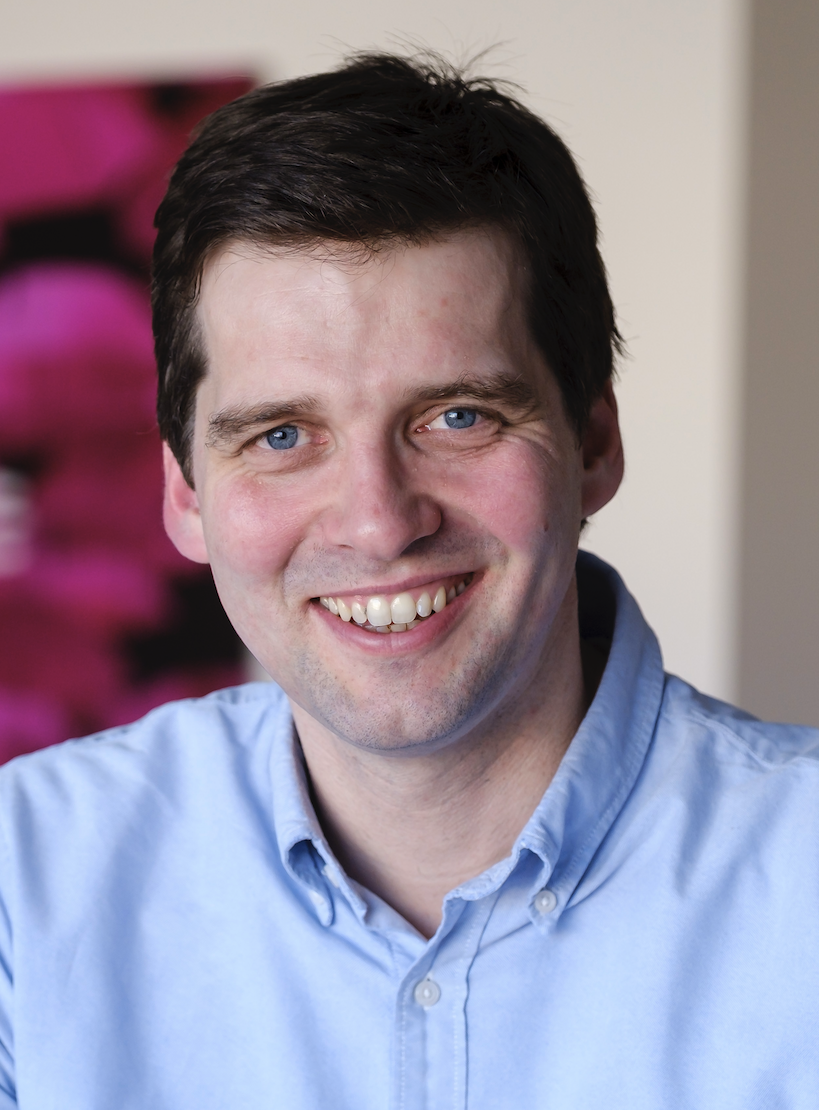



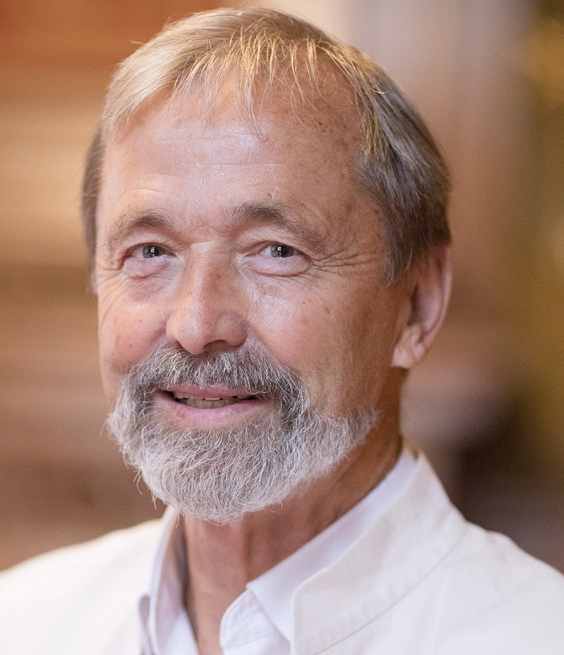 Geoffrey Boulton
Geoffrey Boulton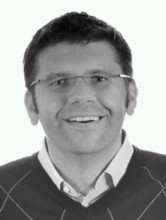 Christian Briese
Christian Briese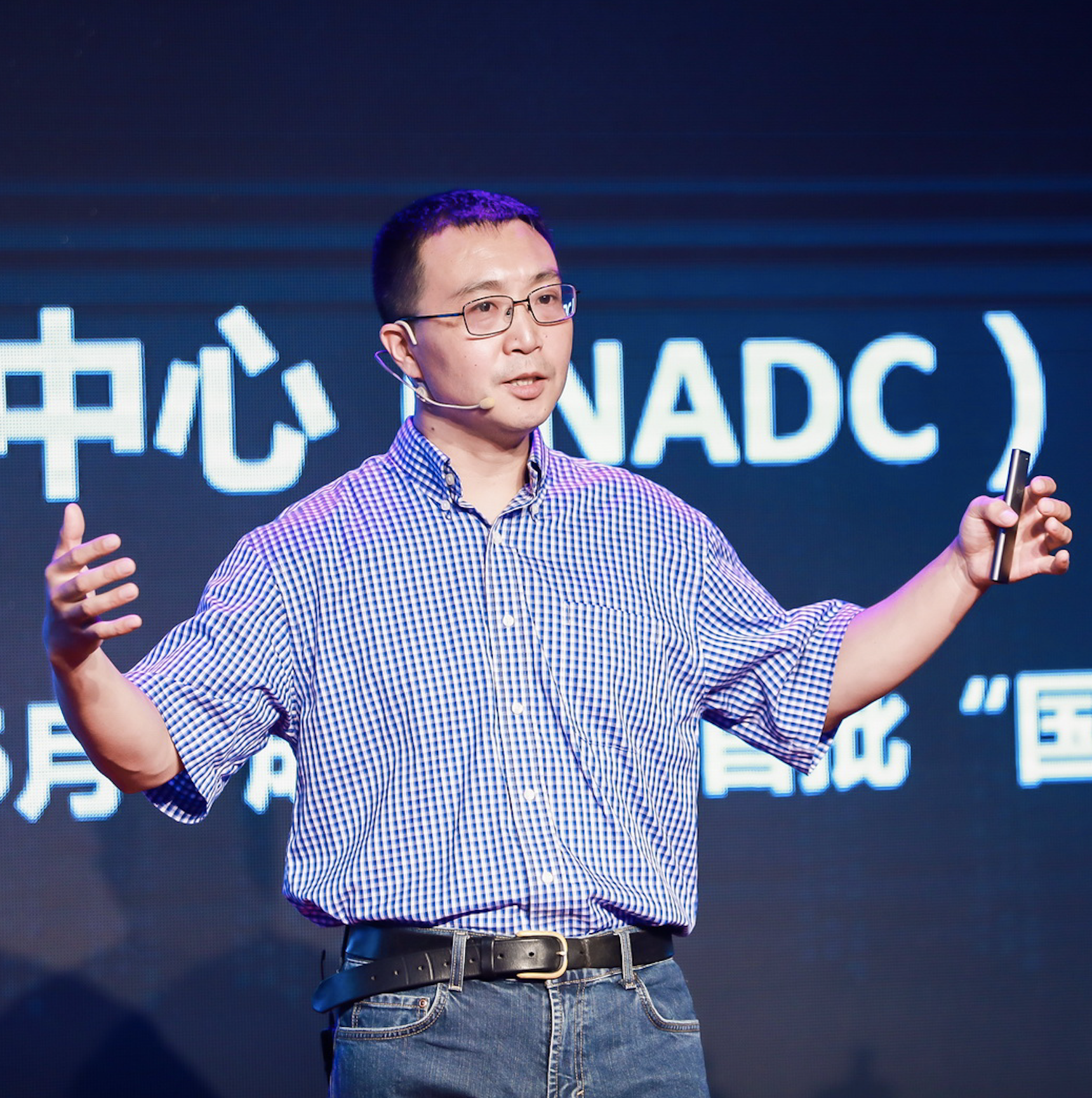
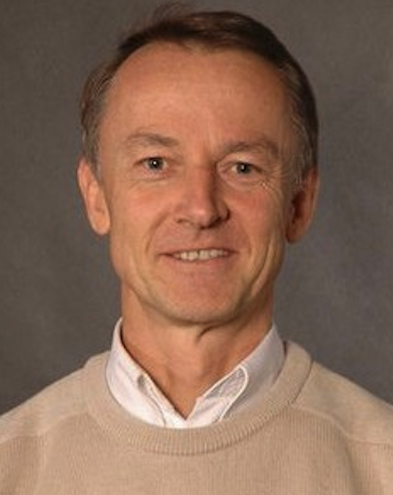
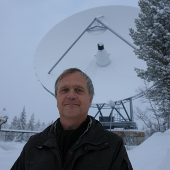
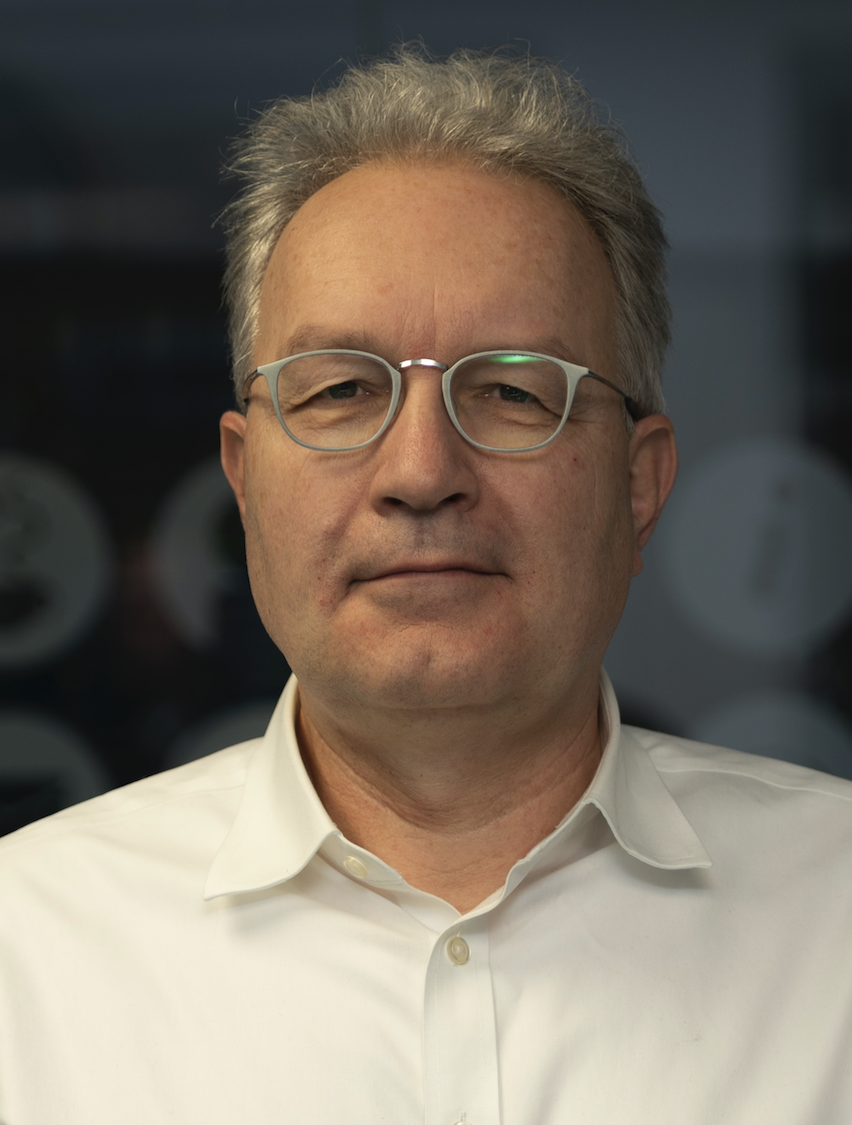
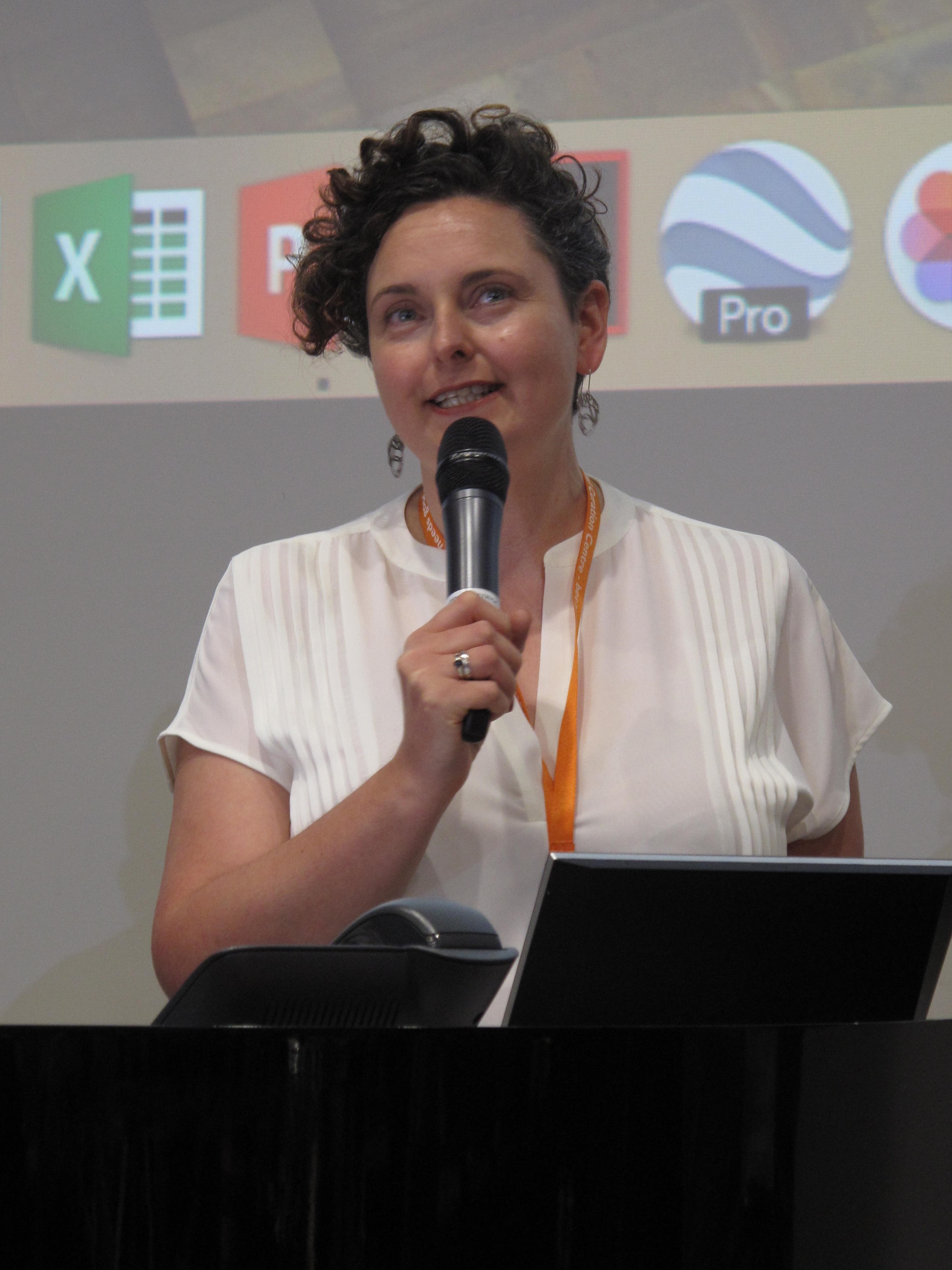
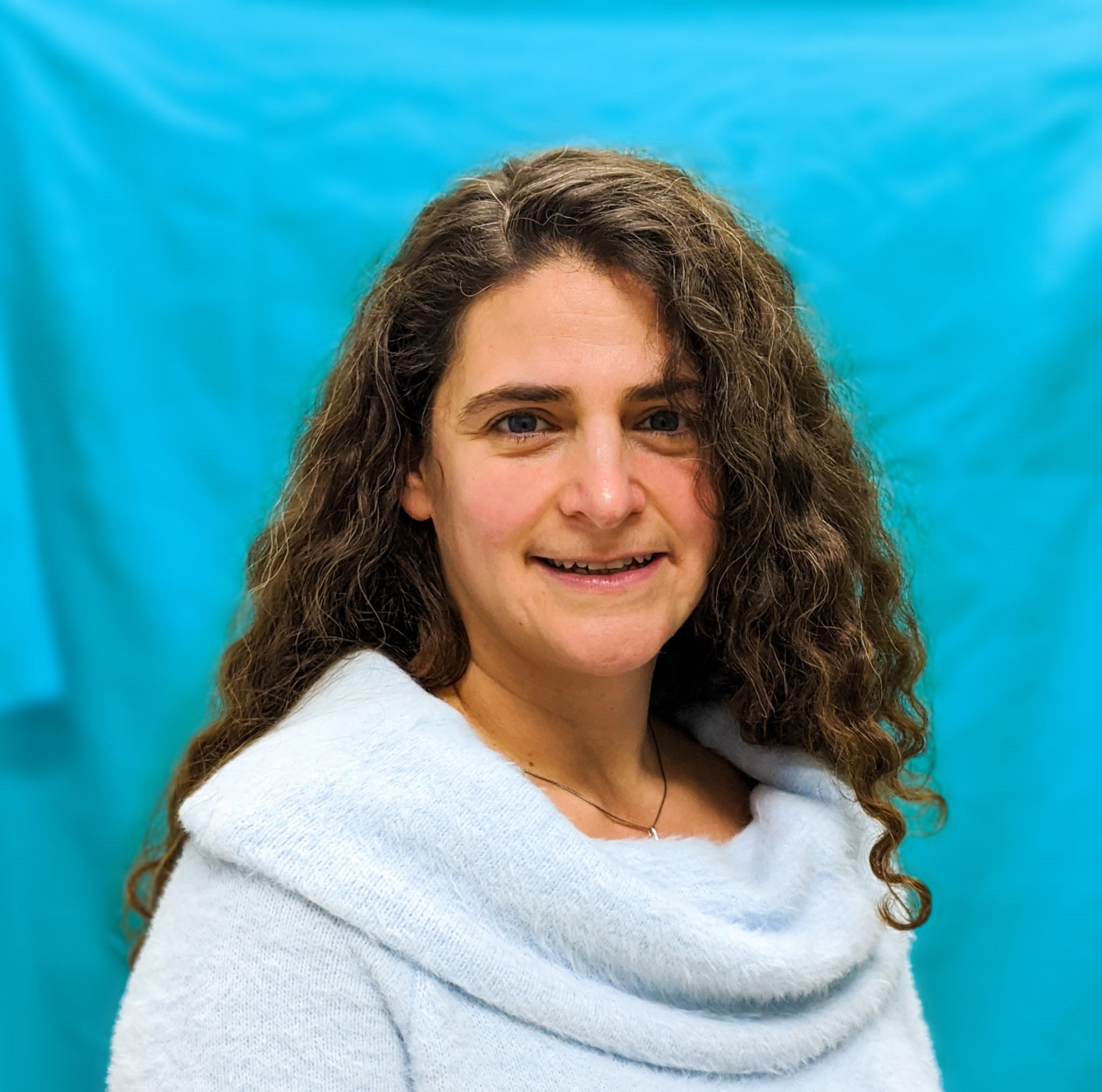 Rebecca Lawrence
Rebecca Lawrence 